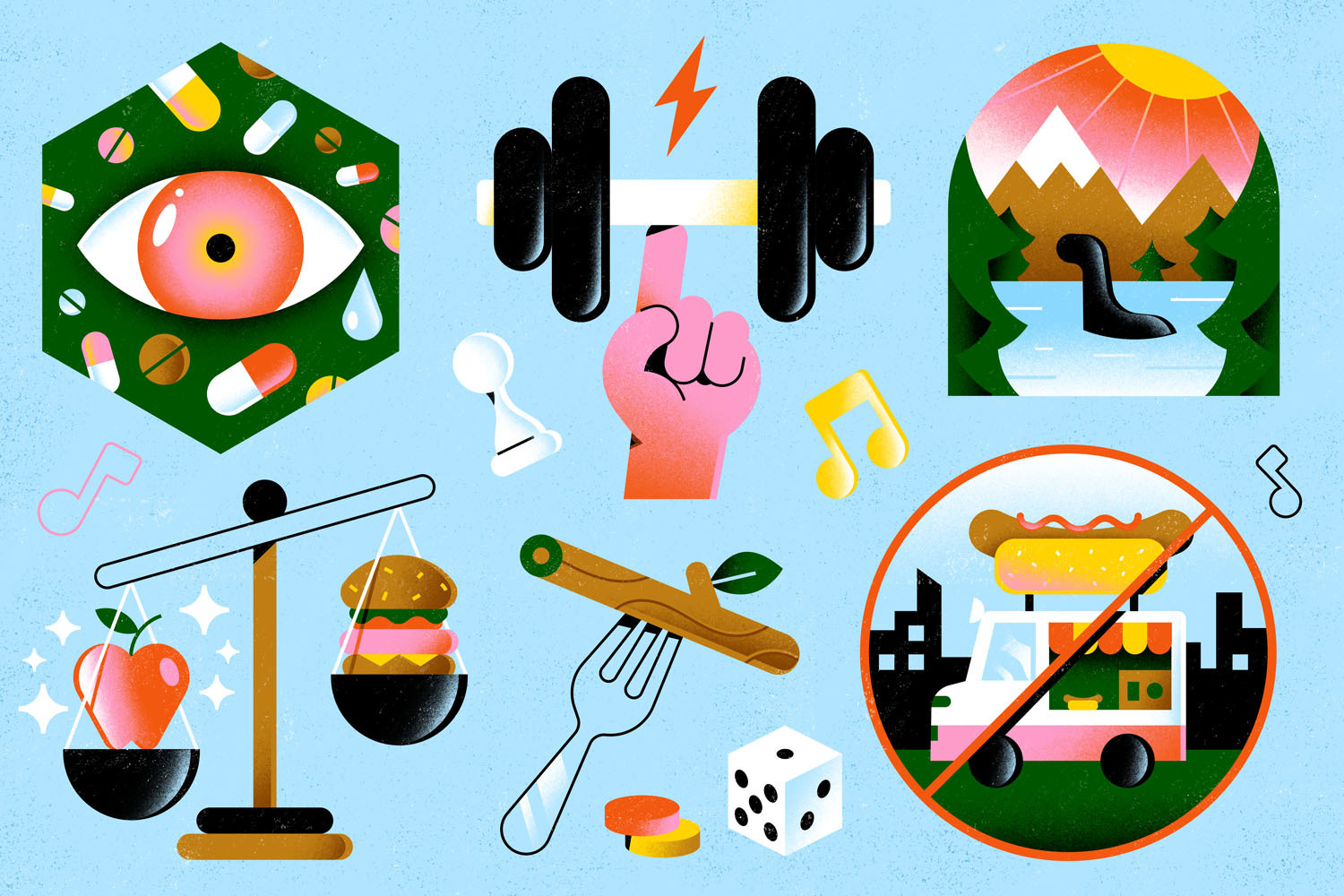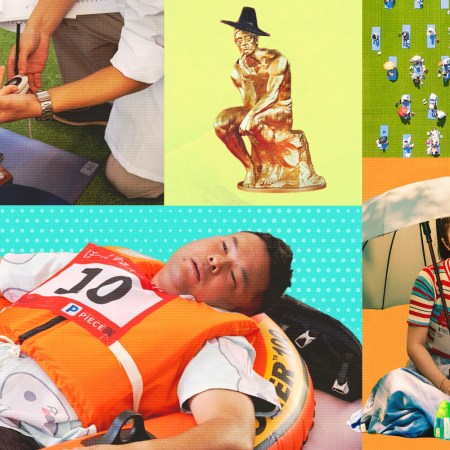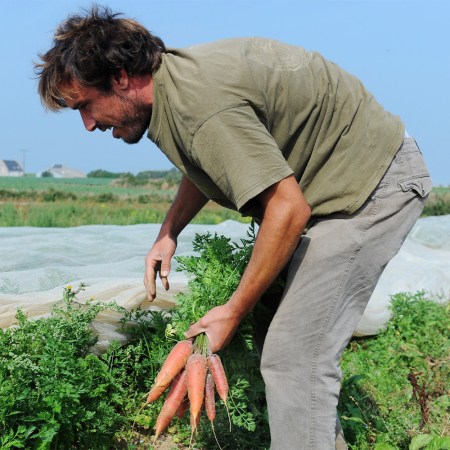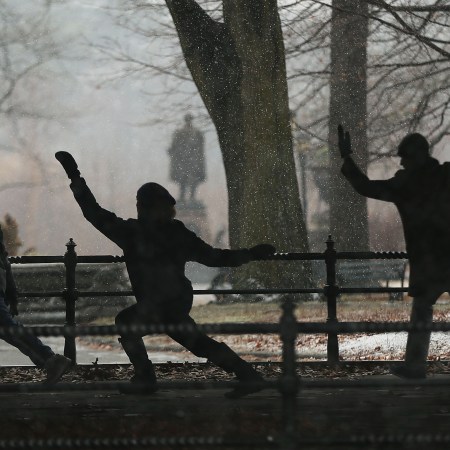If you’ve ever been unfortunate enough to pay a visit to the “So your relationship fell apart” corner of the internet, you’re aware that it’s ripe with advice on how to rediscover and better yourself now that you’re on your own again. Such as:
- Learn another language!
- Plan a trip to Europe!
- Sign up for guitar lessons!
- Join an intramural softball team!
And so on. On the one hand, these suggestions come across as frivolous. Learn how to speak Italian? Great. With what funds, motivation or time? But more than that, they just read as trite. This is the same boilerplate knowledge that gets recycled anytime anyone is in desperate need of distraction, or involvement, or happiness, or all of the above. If you can convert one of those CTAs into meaningful action, good for you. But you’re probably in the minority. Most of us forget we downloaded Duolingo after a few days.
Why is that, though? Why is it so difficult for us to pick up a new skill, visit a new place or commit to doing things with new people? And why do we only think to relitigate our relationship to the unknown after a destabilizing life event, such as a breakup or divorce? Wouldn’t it be a little easier, perhaps, to push past our personal comfort zones when life is gliding along? At a time when your self-confidence isn’t in pieces on the floor?
From a reasonable perspective of adult life — having kids, paying bills, taking care of family — there is often zero convenient time for dramatic self-edification. It can even be perceived as privileged and selfish: “You’re a triathlon dad? Wow. That’s a lot of time on the roads and in the pool. You must have a great relationship with your family.”
From a neurological perspective, though, it’s always the right time to be lining up exciting challenges for yourself. Those overused, seemingly meaningless tips have way more power than we give them credit for. They’re a roadmap for healthier living. Not necessarily for getting in shape or improving one’s mental health, but for literally building a better brain.
At a time when younger generations are spending obsessively on health and wellness — nearly 50% of both Millennials and Gen Zers shell out well over $100 a month on their fitness — and fueling booms in the nutrition, multivitamin, connected fitness, biometric wearable and activewear sectors, there’s one paradigm of well-being they might be neglecting: “cognitive fitness.”
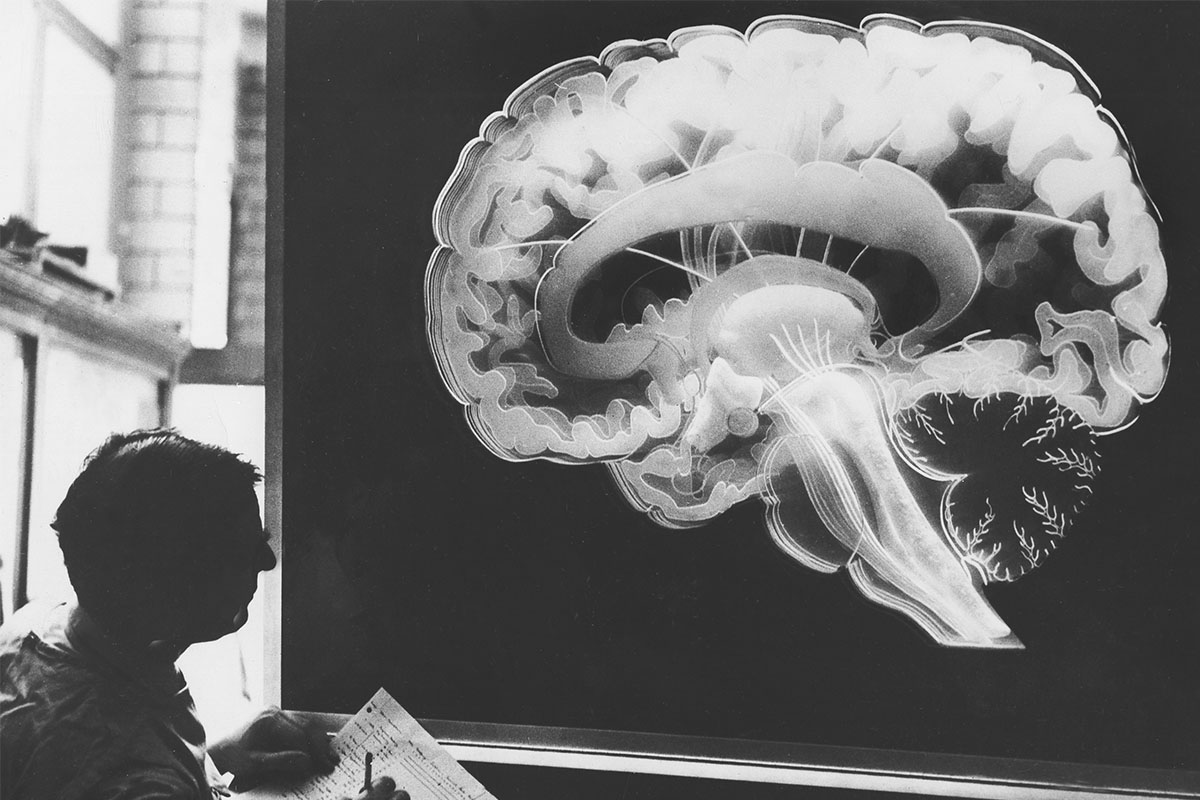
First defined in an article for Harvard Business Review in 2007, by professors Roderick Gilkey and Clint Kilts of Emory University, good cognitive fitness refers to “a state of optimized ability to reason, remember, learn, plan, and adapt.” It’s alertness, basically, and the sort that “prevent functions such as memory from deteriorating as you age.” It’s little wonder that “Celeb reveals splashy cognitive fitness secrets!” doesn’t grace the covers of men’s magazines; few of us want to spend much time thinking about a period in our lives where we’ll lose memories or alertness.
In some ways, that proposition feels a bit too similar to thinking about death — and that’s a tough sell in its own right. That’s not to say there isn’t consumer interest in longevity. Anti-aging is a $15 trillion industry, which has been called the “biggest business opportunity of the 21st century.” Too often, though, longevity thinking hinges on age as a number, as if the mere concept of staying alive is the endgame. But an extended lifespan with an unfit brain can be a horrible sentence, in many ways worse than an early exit. Which is why centenarian-hopefuls shouldn’t just be eating cruciferous vegetables or going for a jog each day. They should be seeking out constant challenges (“mental workouts,” as Gilkey and Kilts called them), that “alter the physical makeup of your brain…delay senescence for years…and expand your neural systems.”
In the last few decades, there have been hundreds of studies about the symbiotic relationship between a dynamic lifestyle and a neurally complex brain. It boils down to a concept called “brain plasticity” (or “neuroplasticity”). We now know, contrary to previous assumptions, that neurogenesis does not end in childhood. In fact, it can extend well into old age. No matter how stubborn we may become — in our rituals or opinions — there still exists a capacity for the brain to change and improve itself.
Investing in new experiences is sort of like passing a massive infrastructure bill. The brain puts that investment to good use, fortifying existing highways and bridges (synapses), while building new connections. In some cases, it even puts efficient new cars (neurons) on the road. Stockpiling experiences and challenges now — and hoarding the many neurological benefits they convey — has a direct link to neurological performance later in life. It specifically informs a phenomenon known as cognitive reserve.
In the 1980s, researchers were shocked to discover autopsied brains that displayed “brain changes consistent with advanced Alzheimer’s disease.” By every recognizable standard, these men and women should’ve died with dementia. But they hadn’t. Why? The prevailing reason: their brains were more resistant to the inherent damages of old age. With more neuropathological change came more resilience. And when Alzheimer’s arrived, their brains had the flexibility (scientifically referred to as functional plasticity) to weather — and essentially neutralize — potential harm.
So, what makes for a resilient brain? There are some factors you can’t control (genetics), others you sort of can (education, occupation) and one sweeping category you most definitely can (lifestyle). The more years you spend in school and the more “cognitively complex” your job, the greater your potential cognitive reserve. Unfortunately, most adults are far removed from school and don’t have the funds or drive to go back, and polling has confirmed that an overwhelming majority of adults don’t feel inspired by their work.
The pandemic may have naturally driven many employees to boost their cognitive reserve; a record number of Americans quit their jobs in 2021. But the brain doesn’t punch out at 5 p.m. It’s on 24/7, and even if a job isn’t as creatively fulfilling as one would hope, there are other ways to get in on this neuropathological goodness. One of them — apologies — is to learn Italian. Another is to learn guitar. As it turns out, the same tips we give to sad sacks on the internet could revolutionize the way your brain operates, and bolster it against the common fangs of old age. Not just dementia, but strokes, Parkinson’s, memory loss and weakened motor function.
Short of bilingualism, though, or turning into John Mayer, there are so many ways to feed your cognitive reserve. You should actively attend workshops and talks, reconnect with old friends, make new ones, join teams, read consistently, watch TV with intention, visit museums and historical sites, travel to new countries, take classes, play board games, solve puzzles. The good news is that living a life in pursuit of cognitive fitness is actually a pretty good life. It involves doing things — and who doesn’t want more of that, after the last few years?
Fascinatingly, forcing yourself to learn new things makes it easier for the brain to learn new things. It creates a positive feedback loop, enriching your life one experience at a time, until one day you get old, and the final reward is that you get to remember all those experiences.
To be clear, this isn’t groundbreaking research. For 20 years now, we’ve known that “frequent participation in cognitively stimulating activities is associated with reduced risk of [Alzheimer’s disease].” It isn’t even groudbreaking knowledge; we all begrudgingly agree that being uncomfortable and trying new things is good for us, no matter how much easier it may feel to stay on the same couch, working the same job. But it’s important to install cognitive health as an essential pillar of well-being, right there with our affinity for physical health and our growing respect for mental health.
Consider that dementia affects one in six people over 80. And the amount of people over 80 is about to skyrocket as life expectancy averages continue to rise over the next half-century in response to dizzying medical advancements. It’s no longer enough to just want to live a longer life, it’s critical that you prepare for it, too. Unfortunately, there’s no manual for this sort of thing. There’s no one hobby you should adopt, or place you should visit, that will snap all your synapses into the right place.
It should also be noted that an open mind can only take you so far: exercise, nutrition and limiting alcohol consumption (along with 97 other tenets we wrote about late last year) will all play a role in brain resilience, too. But while fitness is so often associated with pain and sacrifice, this is one underrated arena that prizes play and discovery. Where to start? There’s a good chance you already did, sometime in the last month. Wordle is cognitive reserve dynamite. Pair that with your smoothie and spin class and you’re well on your way.
Whether you’re looking to get into shape, or just get out of a funk, The Charge has got you covered. Sign up for our new wellness newsletter today.

